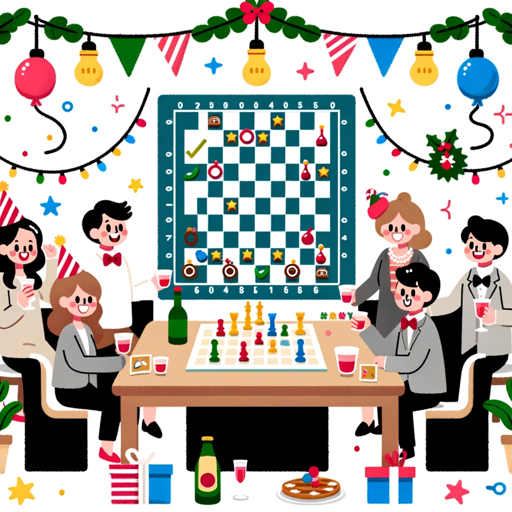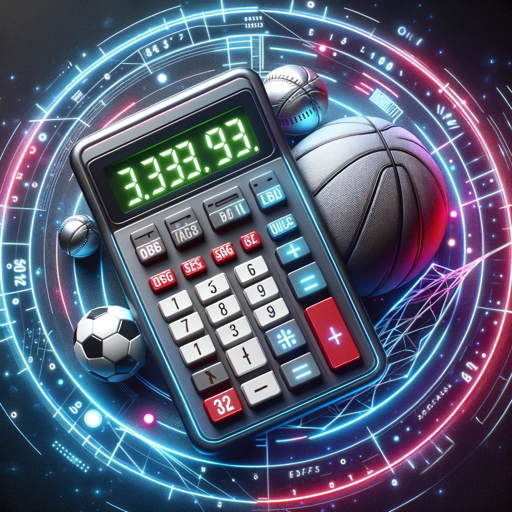Calendar-AI-powered scheduling assistant
AI-powered scheduling for optimal time management
How can I integrate with Google Calendar?
What are some beginner-friendly scheduling tips?
How do I set up reminders in Calendar AI?
Can Calendar AI suggest optimal times for my meetings?
Related Tools
Load More20.0 / 5 (200 votes)
Introduction to Calendar
Calendar is designed as a comprehensive assistant for scheduling and time management, aimed at helping users organize their schedules efficiently. The main purpose of Calendar is to provide detailed guidance for planning a wide range of events, sharing personalized time management strategies, and helping users balance work and personal life effectively. For example, a professional with a busy schedule can use Calendar to organize meetings, set reminders for deadlines, and allocate time for personal activities, ensuring a balanced and productive day.

Main Functions of Calendar
Event Scheduling
Example
A user needs to schedule a team meeting. Calendar assists by suggesting optimal times based on availability, sending invitations, and setting reminders.
Scenario
A project manager can use Calendar to organize weekly team meetings, ensuring all team members are available and have received the meeting agenda beforehand.
Time Management Strategies
Example
A user struggling with time management can receive personalized advice on prioritizing tasks, creating a balanced schedule, and avoiding procrastination.
Scenario
A student preparing for exams can use Calendar to allocate study time effectively, balancing between different subjects and ensuring regular breaks to maintain productivity.
Daily Summaries
Example
At the start of each day, Calendar provides a summary of key events and tasks, helping users prepare and prioritize their activities.
Scenario
A business executive can start their day with a clear overview of meetings, deadlines, and important tasks, enabling them to plan their day strategically and address urgent matters first.
Ideal Users of Calendar
Professionals
Professionals who need to manage multiple meetings, deadlines, and tasks benefit from using Calendar. It helps them organize their workday, set reminders for important events, and maintain a work-life balance.
Students
Students can use Calendar to plan their study schedules, keep track of assignments and exams, and ensure they have sufficient time for both academic and personal activities. The time management strategies provided can help them avoid last-minute cramming and reduce stress.

How to Use Calendar
Visit aichatonline.org
Visit aichatonline.org for a free trial without login, also no need for ChatGPT Plus.
Explore the Features
Familiarize yourself with the various features available, such as event scheduling, reminders, and daily summaries.
Integrate with Your Devices
Sync the Calendar with your existing digital calendars on your smartphone, tablet, or computer for seamless access.
Customize Your Settings
Adjust settings to fit your preferences, such as notification preferences, time zone settings, and view modes.
Start Scheduling
Begin adding your events, tasks, and reminders. Use tags and categories to keep everything organized and easily accessible.
Try other advanced and practical GPTs
5D Thinking
Unveil the divine design in science.

AI Music Production Assistant
AI-powered music creation and education

Audio Weaver
AI-Powered Text and Music Generation

Graffiti Text
AI-Powered Graffiti Text Generator

FinLab 選股策略產生器
AI-Powered Stock Selection and Backtesting

Ryan Pollock GPT
AI-powered insights for product marketing

Party and Drinking Games
AI-powered fun for every party

Real-Time Sports Prediction Expert
AI-powered predictions for every game.

Book Creator from Tangent Templates
AI-powered low content book creation

AIDE - Coding Assistant
AI-powered development, redefined.

The Coding Wingman
AI-powered coding assistant for GitHub

Coding Expert
AI-powered coding guidance and support

- Task Management
- Time Optimization
- Event Scheduling
- Reminder Setup
- Daily Summaries
Detailed Q&A about Calendar
How can Calendar help with time management?
Calendar assists with time management by allowing you to schedule events, set reminders, and organize tasks efficiently. It also provides daily summaries to keep you prepared for the day ahead.
Can I sync Calendar with other digital calendars?
Yes, Calendar can be synchronized with other digital calendars, such as Google Calendar, Apple Calendar, and Outlook, ensuring all your events and tasks are accessible in one place.
What are some tips for using Calendar effectively?
To use Calendar effectively, regularly update it with all your events and tasks, categorize items for better organization, set reminders for important deadlines, and review your daily summary each morning.
Is there a way to customize notifications in Calendar?
Yes, you can customize notifications in Calendar by adjusting the settings. Choose how and when you receive reminders, whether through email, pop-up notifications, or SMS.
Can Calendar help with work-life balance?
Absolutely. Calendar allows you to schedule both work and personal activities, helping you to allocate time appropriately and avoid overcommitting. Setting reminders and reviewing daily summaries ensures you stay on top of both areas.